The Commerce Commission (Commission) has continued to take steps to try to reduce the fees consumers pay for using some types of payment methods including credit cards. In connection with that the Commission published updates in early August 2023 on its inquiries into:
- the implementation of “interchange fee” caps imposed in relation to Visa and Mastercard credit and debit cards;
- fees merchants charge consumers to use some payment methods (merchant surcharges).
We consider the updates below and the possibility that the Commission will use its powers to further regulate in relation to merchant surcharges.
The Commission has previously provided guidance for merchants on merchant surcharges. We summarise and comment on that guidance HERE.
The Commission is also concerned about a lack of innovation in relation to bank-to-bank payments. It is considering whether to introduce regulations that will make it easier for new entrants to access bank-to-bank payment networks. It has published a paper on this topic and potential actions it could take in response, and is seeking submissions by 25 September 2023. This blog post doesn’t consider that initiative.
The Commission’s actions in relation to interchange fees and merchant surcharges arise in connection with the Commission’s powers under the Retail Payment System Act 2022 (Act) to impose restrictions and requirements on various parties to retail payment networks including:
- payment service providers (PSPs) such as banks;
- merchants.
The Act and the Commission’s investigations are a response to concerns about the level of charges imposed on consumers for using some types of payment methods, and a lack of transparency that affects the ability of consumers to choose the most appropriate payment methods.
Overall it appears that the Commission is taking a measured approach. In particular, it is seeking more information and trying to influence conduct rather than seeking to immediately impose further regulation. However, it is possible that the Commission will use its powers to regulate, if it is not satisfied that its efforts are ultimately leading to lower fees for consumers.
This blog post was written by Simon Papa, Ken Ng and Brandon Lim. If you have any questions or if you would like advice on any of these matters you are welcome to contact Simon Papa.
* This is summary information only. It does not cover all relevant matters and is not legal advice. This blog post takes into account law and guidance as at the date of publication.
Interchange Fees
The only restriction imposed under the Act to date is a cap on the value of “interchange fees” that Visa and Mastercard can charge PSPs for payments made using their credit and debit card networks. The caps came into force in November 2022. Similar caps have been implemented in other countries including Australia.
In 2009 some changes were introduced in relation to Visa and Mastercard interchange fees together with the removal of contractual bars on merchants imposing surcharges for use of their cards. This followed the entry into settlement agreements between the Commission and Visa, Mastercard and some banks and merchants. The Commission considered that the bars on surcharges were potentially anti-competitive. This highlights that the Commission is not concerned about merchant surcharges being imposed (in fact it supports them as part of price transparency) but rather about the amount being charged.
Interchange fees are the biggest component of service fees PSPs charge merchants for payments made using Visa and Mastercard credit and debit card networks. So a reduction in the interchange fee should result in a reduction of the service fees PSPs charge merchants. In its 8 August 2023 update the Commission noted that it was concerned that a significant proportion of cost savings to the PSPs from the lower interchange fees are not being passed on to merchants in the form of lower service fees and ultimately to consumers in the form of lower merchant surcharges. Also, the Commission noted that, after an initial 8 to 18% decrease in service fees, from December 2022 to March 2023 the average PSP service fee charged to merchants actually increased. The Commission identified some of the factors that led to the increase including that fees (excluding the interchange fees) are increasing.
It is possible that the Commission will use the Act to address its concerns, if there isn’t further improvement. That does not necessarily mean that it will seek to further regulate interchange fees. Rather, for example, it could require standardisation of how PSP service fees are categorised and/or described, so that merchants can more easily compare fees charged by different PSPs.
Merchant Surcharges
On 3 August 2023 the Commission published a progress update on its investigation into merchant surcharges imposed on customers for using some payment methods. There is currently no specific law that regulates or prohibits merchant surcharges (although poor conduct in relation to payments and pricing could potentially breach fair trading law). The Commission has the power under the Act to regulate those surcharges. However, it has not done so as at the date of this blog post. Its ongoing investigation is clearly part of a process of considering whether it should regulate those surcharges. The Commission has encouraged merchants to review their approach to surcharging and has published related guidance. We have summarised and commented on that guidance HERE.
The Commission’s view is that surcharges are acceptable but that they should not, in most cases, exceed the value of the service fees charged by PSPs to merchants for using relevant payment methods. The Commission is particularly concerned where merchant surcharges include a profit margin. This follows from the purpose of the Commission’s regulatory powers (stated in the Act) in relation to merchant surcharges, which is to ensure that merchant surcharges are no more than the cost to the merchant of accepting payments.
The Commission notes in the progress update that it engaged with selected large merchants on surcharges, including Air New Zealand, Jetstar, Auckland Council and One New Zealand. Some have reduced their surcharges as a result. In cases where the merchant surcharges may be higher than the fees imposed by PSPs the Commission records the status of its inquiries with the relevant merchants as “engagement in progress”. This indicates that the Commission is not satisfied with the initial response from the relevant merchants.
The Commission is encouraging payment terminal providers to monitor whether their terminals are enabling excessive surcharging.




